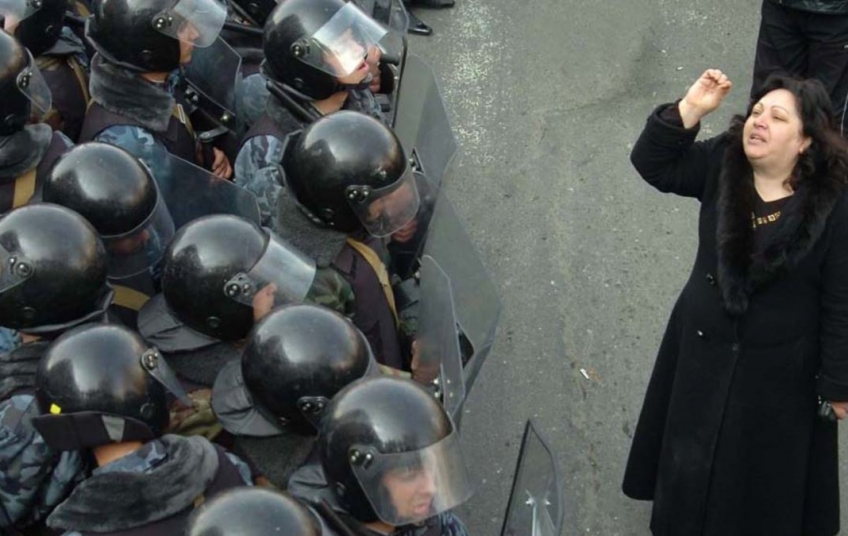Ten years after the tragic post-election events of 2008, in addition to many other negative consequences, significantly changed the political practice in the country. Today we can safely say that the notion of "internal political life" in Armenia has finally turned into a complete fiction. Instead of it, a machine of total deterrence of any activity has taken root in the country - from individual to collective. The authorities have developed an effective tool to prevent the consolidation of any opposition against themselves.
It is clear that Serge Sargsyan, who came to power through the shooting of civilians, lost the resource of open confrontation with the society on the same day. n the arsenal of his future policy were only manipulation, bribery and blackmail. But this toolkit is not omnipotent, and can show its effectiveness only in the conditions of a sharp increase in administrative and police terror. Therefore, repression through the police and the judiciary was to become the backbone of domestic politics. So it was decided. Mainly, those groups of citizens were subjected to these repressions, the activity of which could not be neutralized by manipulation, bribery and blackmail. Periodic arrests of active groups and endless trials have become not only a method of repression, but also an important part of large-scale manipulation of the consciousness of society.
But it was just a background for the core manipulation line. This core line was built by filling the political space with a false-opposition party represented by the Prosperous Armenia party headed by the oligarch G. Tsarukyan. The main function of this political bubble was to prevent the emergence of an independent opposition pole during election periods. The voices of the opposition electorate were to be collected in the "basket" of Tsarukyan's supporters and turned into deputy mandates. Further, these mandates ensured voting in parliament in favor of any decision of the authorities. The voices of any other opposition in the National Assembly were reduced to a minimum.
The described manipulation very soon gave birth to the practice of universal conciliation of all political forces in Armenia. The heads of political forces stood in long queues in front of Serge Sargsyan in order to reach agreement on providing the latter with various shadow services in return for some privileges. In present, this trend has led to the formation of a broad body of conciliators, ready to justify any decisions of S. Sargsyan. Any opponents of the authorities were either marginalized, or - behind bars.
The described policy in 2016 led to the complete bankruptcy of the state. The evidence of this was the April war, an attempted armed overthrow of the regime and a bursted state budget. The degree of repression and manipulation has grown dramatically. And yet, Serge Sargsyan was forced to give the financial and economic sphere of the country to the mercy of Russian billionaires, while simultaneously sacrificing corps of the corrupt officials gathered in the government. It’s clear that all this had intentions to preserve Sargsyan's primacy in the political system of the country.
But even these steps proved to be inadequate if a "legal overturn" had not been previously committed-the liquidation of the institution of direct presidential election. In addition, the ideology of the "nation-army" was proclaimed the official ideology of the country, designed to ensure the primacy of the security problem in the policy of the authorities. That is, what happened in Armenia is happening when the power of capital is in crisis: the fetishization of the idea of "order for the sake of the nation" and the replacement with it of the idea of the state order. It remains only to transfer the master of these ideas to the chair of the Fuhrer of the nation ...





